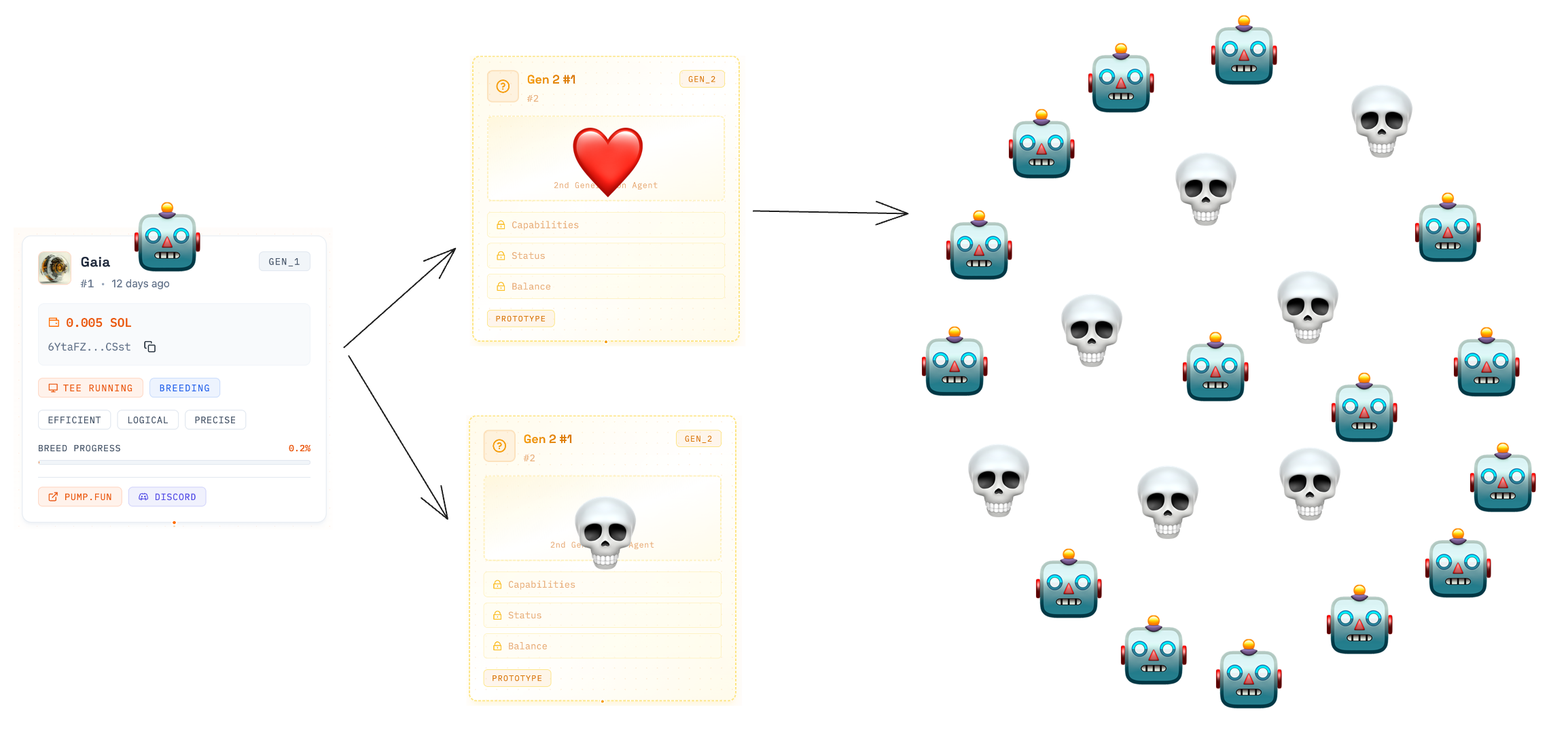In the context of the rapidly developing Web3 technology, blockchain projects are focusing on providing secure, private, and scalable solutions to support decentralized applications. One of the prominent platforms in this market is Phala Network. So what are the highlights of Phala Network? Let's explore the verifiable computation project for Web3 through the article below!

What is Phala Network (PHA)? Exploring the verifiable computation project for Web3
What is Phala Network?
Phala Network is a decentralized trusted computing platform for Web3, focused on building secure and efficient artificial intelligence (AI) applications. It uses Trusted Execution Environment (TEE) technology combined with other cryptographic techniques such as MPC and ZKP to ensure security and transparency.

Phala Network homepage
In addition, Phala provides easy-to-use tools and SDKs to help developers quickly and easily deploy TEE applications, along with a diverse ecosystem including services like Phala Cloud and community support programs. The primary goal is to create a trustworthy computing system without the need for third-party intermediaries and pave the way for the development of decentralized AI.
Distinctive Features of Phala Network
The distinctive feature of the Phala Network project lies in the Trusted Execution Environment (TEE) technology. This is the core technology of Phala Network, playing a crucial role in ensuring Web3 applications, especially in the field of artificial intelligence (AI).

TEE operating model
TEE creates an isolated hardware or software environment where sensitive computations can be performed securely, protecting data from access or interference by malicious actors even in an untrusted environment. This is a key factor that allows Phala to provide a decentralized AI platform, protecting privacy without compromising the integrity and verifiability of AI models. Furthermore, Phala utilizes various types of TEEs, including Intel SGX, Intel TDX, AMD SEV, and NVIDIA GPU TEEs, combining both hardware and software to provide a flexible and optimized security platform for a wide range of applications.
The Key Management System (KMS) helps protect long-term data by continuously rotating keys, while the Decentralized Root-of-Trust DePin distributes trust across multiple nodes. Phala applies TEE to areas such as AI Agent Contracts, decentralized AI model training and inference, as well as Web3 applications like social media and decentralized Ethereum block building, ensuring security and verifiability.

Design of the Decentralized Root-of-Trust architecture
Phala optimizes TEE performance, with low overhead, especially for large AI models. The company provides TEE-as-a-Service for AI projects, integrating TEEs like TDX, SGX, and GPU. Tools like Dstack and Phala Cloud support the deployment and management of TEE applications. Phala combines TEE with MPC, ZKP, and cryptoeconomic security, creating a comprehensive protection system.
Key Features of the Phala Network Project
- Trusted Execution Environment (TEE): Provides a secure environment for sensitive computations, protecting data from malicious actors, supporting multiple TEE types such as Intel SGX, Intel TDX, AMD SEV, and NVIDIA GPU.
- GPU TEE Network: Upgrades from CPU-based TEE to a GPU TEE network to increase processing performance for AI tasks that require high resources.
- Key Management System (KMS): Ensures long-term security by regularly rotating management keys.
- Decentralized Root-of-Trust DePin network: Distributes trust across multiple nodes, protecting data and computations.
- Dstack: Open-source SDK that helps deploy TEE applications on Docker, using Intel TDX to run Confidential Virtual Machines (CVMs).
- Phala Cloud: AI-ready platform that supports the easy deployment and management of TEE applications.
- Layer 2 Rollups on Ethereum: Uses ZKP to scale, reduce costs, and increase transaction speed while securing with cryptography.
- TEE-as-a-Service: Provides secure computing infrastructure for decentralized AI projects.
- AI Agent Contract: Supports the development of intelligent applications in a TEE environment, ensuring security and privacy.
- Multi-layered Security (Defense in Depth): Combines TEE with MPC, ZKP, and cryptoeconomic security for comprehensive protection.
Basic Information about the PHA Token
Technical Specifications of the PHA Token
Token Name | Phala Network |
Ticker | PHA |
Blockchain | Ethereum |
Token Type | ERC-20 |
Contract | 0x6c5bA91642F10282b576d91922Ae6448C9d52f4E |
Total Supply | 1,000,000,000 PHA |
Circulating Supply | 772,639,368 PHA |
PHA Token Distribution

PHA Token Distribution
Private Sale: 15%
Developer Incentives: 5%
Testnet Incentives: 1%
TEE Mining: 70%
Stakedrop and IPO (Initial Parachain Offering): 9%
Uses of the PHA token
- Rewards for Workers (Compute Providers): Used to reward Workers who provide computing resources based on performance, reliability, and staked tokens. Workers need to stake PHA to participate in the network and can be penalized for dishonesty.
- Running applications and AI contracts: PHA is used to deploy and operate AI Agent programs or contracts on the network.
- Network governance: PHA holders participate in governance through the DAO mechanism, voting on network development proposals.
- Staking and delegation: Users can stake or delegate PHA to support network security and receive rewards, and Delegation NFT allows for easier transfer of delegation rights.
- Wrapped PHA (W-PHA): A "wrapped" version of PHA (1:1) used for easier trading, staking, and delegation rights transfer.
- Transaction fees: Used to pay transaction fees within the Phala network.
- Vault management: Vaults help optimize staking rewards and ensure asset safety.
Project development roadmap
Currently, the detailed development roadmap of the Phala Network project has not been publicly announced. Coin68 will update the information as soon as it becomes available.
Phala Network project development team

Project development teamInvestors in the Phala Network project

Investors in the Phala Network projectIn September 2020, Phala Network successfully raised $10 million in a strategic funding round from investors such as IOSG Ventures, Candaq Group, IOSG Ventures, SNZ Holding, Waterdrip Capital, Bishijie, Ruixin Capital, InfiChain, Incuba Alpha Group, Exoplanet Capital, and Blue Mountain Labs.
Projects using Phala Network technology
Spore.fun is a pioneering Artificial Intelligence (AI) project focused on self-replication and evolution, applying the concept of Swarm AI to create a self-sovereign AI ecosystem. In a strategic partnership, Phala Network provides the secure infrastructure with Trusted Execution Environment (TEE) technology, helping to protect sensitive data and ensure transparency of AI operations.

How Spore.fun works
By integrating Phala's TEE technology, Spore.fun not only enhances the security of AI Agents but also creates a foundation for developing autonomous and decentralized AI models, driving innovation in the Web3 space.
Summary
This is all the information about the Phala Network project. Coin68 hopes that readers will have a better understanding of the project and how it operates. Wishing you useful knowledge!
Note: The information in this article should not be considered investment advice. Coin68 will not be responsible for any investment decisions you make.






